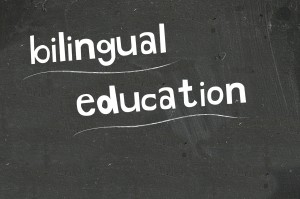Sometimes I feel like a treasure hunter when I travel. There are amazing educational jewels hidden in schools, and I love to find them.
It goes something like this: You visit a school and start to talk to a teacher or a headteacher. Nothing out of the ordinary so far. A normal school in a normal town. But suddenly you hear them say something that catches your attention, like the glimmer of a shiny jewel. Just follow it, ask the appropiate questions and…there it is!
A while ago I found one of these gems in a school called Betania-Patmos located in Barcelona. They had been asked by the regional governtment what kind of profile a teacher needs in this global era, but they didn’t rush to write down hasty conclusions as teachers. They did something smarter. They turned this into a task for their last year high school pupils. This is what they told them:
“Imagine you work in human resources and you have to hire a teacher. What profile would you be looking for?”
And those teenagers (you know, the ones everyone describes as being “lost”) worked in teams for a week, and then presented 11 ideas that demonstrate they might not be the ones who are lost after all, but the ones looking for someone who isn’t.
11 ideas about the Teacher profile required for a global era.
Recruiters: Last year High school students.
This first set of requirements had complete consensus amongst the group.
1.- Teachers commited to helping their pupils, who care for them, are close to them, and instill confidence through respect and generosity.
2.- Teachers with a deep, broad and up-to-date knowledge of their subject area.
3.- Teachers that can express themselves clearly and make themselves understood using structured methods.. Good communicators balanced and mentally organized
4.- Teachers that exude emotion about what they are explaining, and are enthusiastic and passionate about their subject and respectful of other disciplines.
Requirements with a very high level of consensus
5.- Teachers who have mastered different types of learning – from paper to the latest generation of technologies (drawing, writing, sound, image, and mixed media), following the idea of introduction not substitution.
6.- Teachers who have mastered different languages, with English being considered absolutely necessary.
7.- Teachers that teach critical thinking and promote alternative ways of doing things.
8.- Teachers with patience, modesty, energy and coherence.
9.- Teachers that promote participation, interactivity and practice.
10- Fun teachers, with a sense of humour that can make teaching and learning a pleasure.
Requirements sine qua non:
11.- Teachers that are punctual and don’t miss classes.
The first time that I read this I was struck by two things:
– When a teenager says that he is looking for someone stable and mentally organized…it makes you think about what he has seen
– Technology appears in a discreet second place. First people, then gadgets.
So, as you can see here, our youth are just looking for a stable reference in a confusing world. They are looking for educators that can teach their mind and their soul, someone who can maintain the essence of the educational experience even when all the elements keep changing. Because essencially our young generation is alone and we are letting them grow up alone with no tribe to guide them.
As usual Mafalda said it first and better: “Educating is harder than teaching. To teach you need to know, to educate you need to be” .



 Teaching English to teenagers can be frustrating and fulfilling in equal measure. They can be full of energy and ideas that add a real buzz to the class, but they can also be sullen, self-conscious, reluctant to work together and difficult to engage. However, if you approach lessons with teenagers with the right ideas, materials and tricks of the trade, there’s no reason why they shouldn’t be a great success.
Teaching English to teenagers can be frustrating and fulfilling in equal measure. They can be full of energy and ideas that add a real buzz to the class, but they can also be sullen, self-conscious, reluctant to work together and difficult to engage. However, if you approach lessons with teenagers with the right ideas, materials and tricks of the trade, there’s no reason why they shouldn’t be a great success. Using videos in lessons is nothing new for most teachers, but what if there were an easy-to-use tool which insured active listening over passive and were able to provide assessment for learning, gauging understanding and informing future lessons? Enter
Using videos in lessons is nothing new for most teachers, but what if there were an easy-to-use tool which insured active listening over passive and were able to provide assessment for learning, gauging understanding and informing future lessons? Enter  It might come as a surprise to speakers of
It might come as a surprise to speakers of 
